The Chinese words “feng shui” are a combination of “wind” and “water.” So if we put these two together, we can loosely translate them to “the way of wind and water.” Today, we will delve into the feng shui meaning along with its history and use in modern-day China.
View in gallery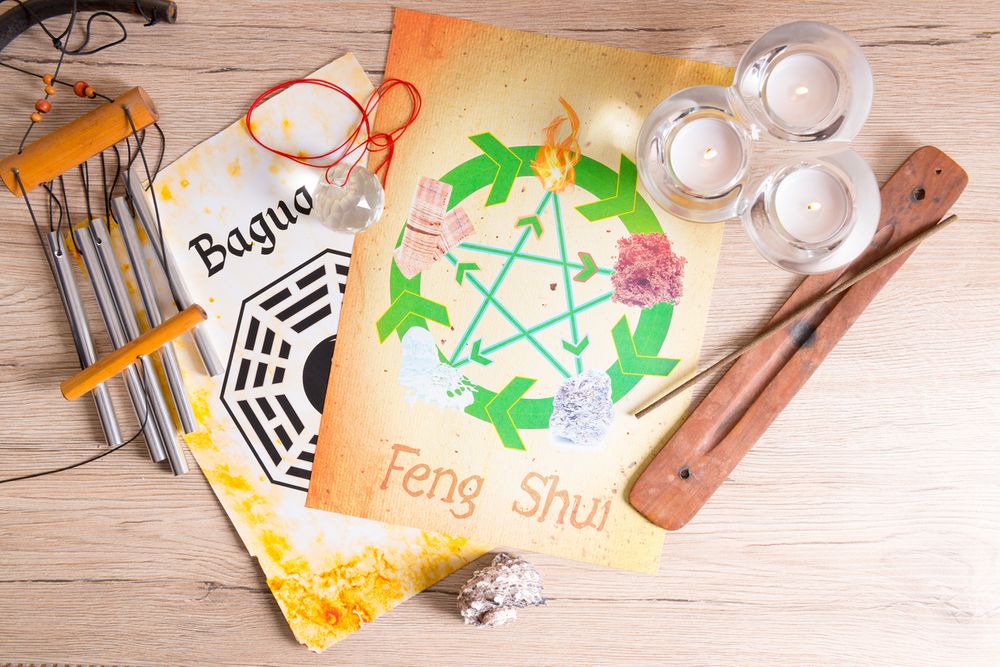
If you’ve ever been fascinated by the meaning of feng shui, we’re going to give you the full rundown of this intriguing Chinese practice. So, without further ado, let’s get into it!
What is Feng Shui?
So, we now know that feng shui translates to “wind and water,” but what exactly is feng shui, and how is it important to Chinese people?
In answer to that question, feng shui is the philosophical practice of arranging items in a living space. The practice aims to create balance and harmony while also bringing positive energy to the people occupying said living space.
In simpler terms, Chinese people believe that arranging the furniture in a particular way can put you in harmony and peace with nature and the natural world.
View in gallery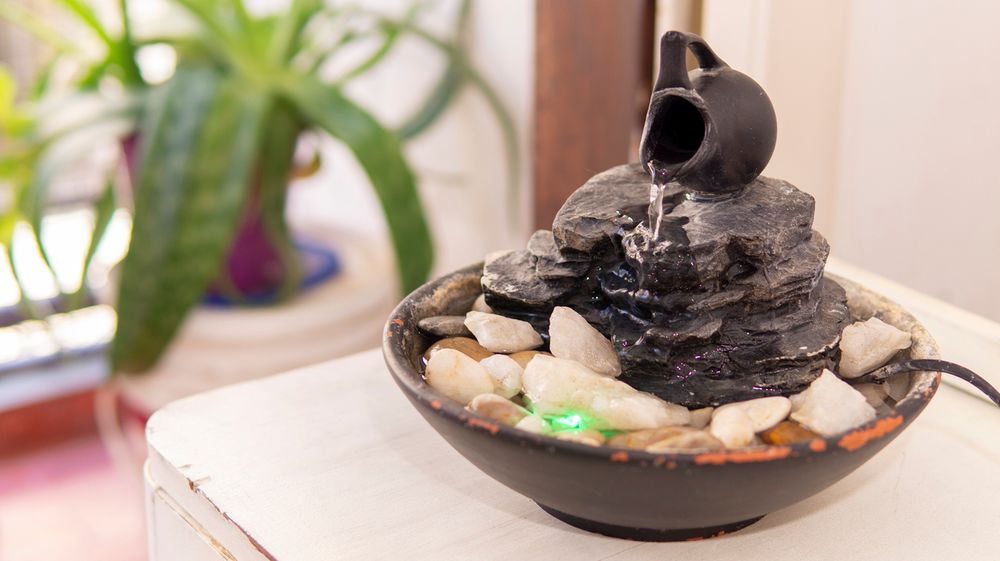
History of Feng Shui
The history and origins of feng shui are up for debate, but there are clear indications that Chinese people have followed the practice for at least 5,000 years.
For thousands of years, the people of China have believed that invisible forces flow around us. And at some point in history, they realized that these forces were linked with the Earth’s magnetic forces.
You’ll be surprised to know that this realization led to the invention of the magnetic compass, which we can also refer to as the feng shui compass. During the 11th century, the compass was adopted for navigation, but it is still heavily used by feng shui masters to determine the ideal location of objects in a living space.
Feng Shui in Tombs
The earliest reference we have to feng shui is in the tombs of the Zhou Dynasty over 5,000 years ago. Throughout ancient China, people used the practice to determine the perfect locations for burial sites.
Chinese people believe that finding the proper position for a grave can bring blessings to the deceased and their family. If they choose a poor site, then misfortune would be brought to future generations.
Feng Shui for New Buildings
Along with tomb placement, feng shui practitioners still use feng shui methods to determine where new buildings should be constructed. Everything down to the location of the land, the direction of the windows, and the area surrounding the building are carefully considered.
View in gallery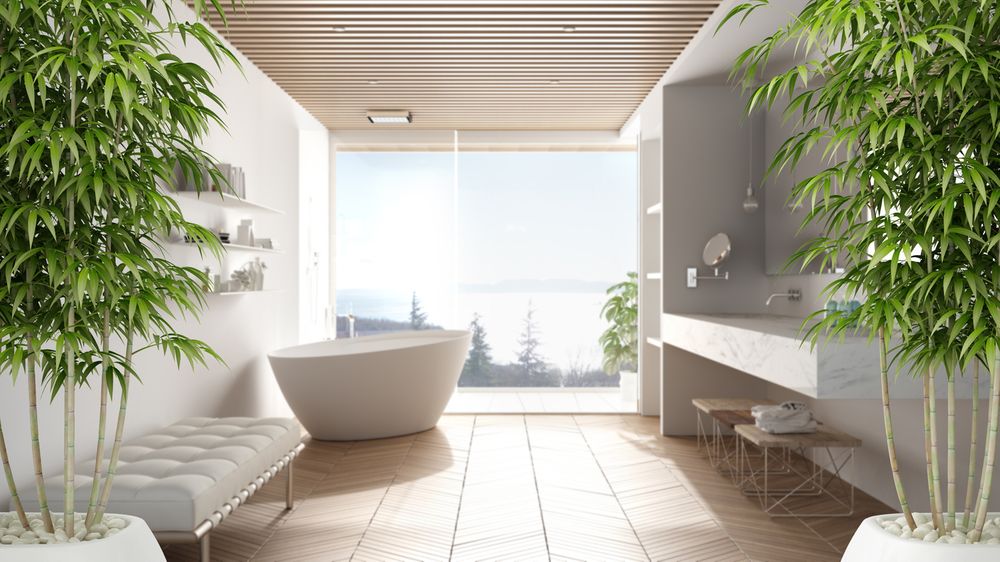
Feng Shui and Interior Design
People of China still use feng shui today to determine tomb sites and building positions. But more commonly, they use feng shui for interior design. Even outside of China, people embrace feng shui to create a positive energy flow throughout their homes and occupied spaces.
So, how exactly does feng shui work? Let’s take a look!
The Commanding Position
The first thing feng shui masters take into consideration is the commanding position. This position is a spot in the room furthest from the door but not in line with the door.
Feng shui guidelines suggest that the commanding position is where you should spend most of your time in the room. So, if you were in the bedroom, for example, your bed would be in the commanding position.
There are three rooms in which the commanding position is particularly important: the bedroom, the study, and the kitchen. Your bed stands for you, your stove represents nourishment and wealth, and your desk your career.
The command position puts you in the best position to deal with whatever may come through the door. After all, you can see the front door, but you aren’t in direct line with it, meaning you have more time and space to physically and mentally deal with any challenges that arise.
View in gallery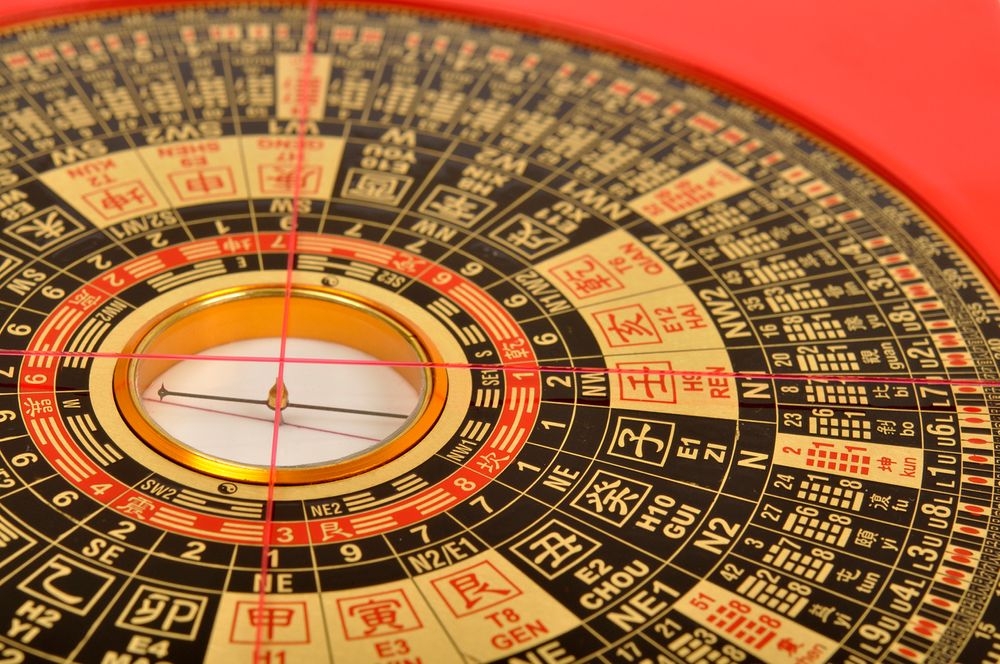
Feng Shui Bagua Map
The Bagua map is a feng shui energy map that consists of eight areas around a centerpiece. And that centerpiece is you. The energy grid is a blueprint for determining the design floor plan of any given space.
“Bagua” translates to “eight areas,” each reflecting a different section of your life. All eight areas have corresponding numbers, colors, shapes, seasons, and earthly elements.
The Eight Areas
View in gallery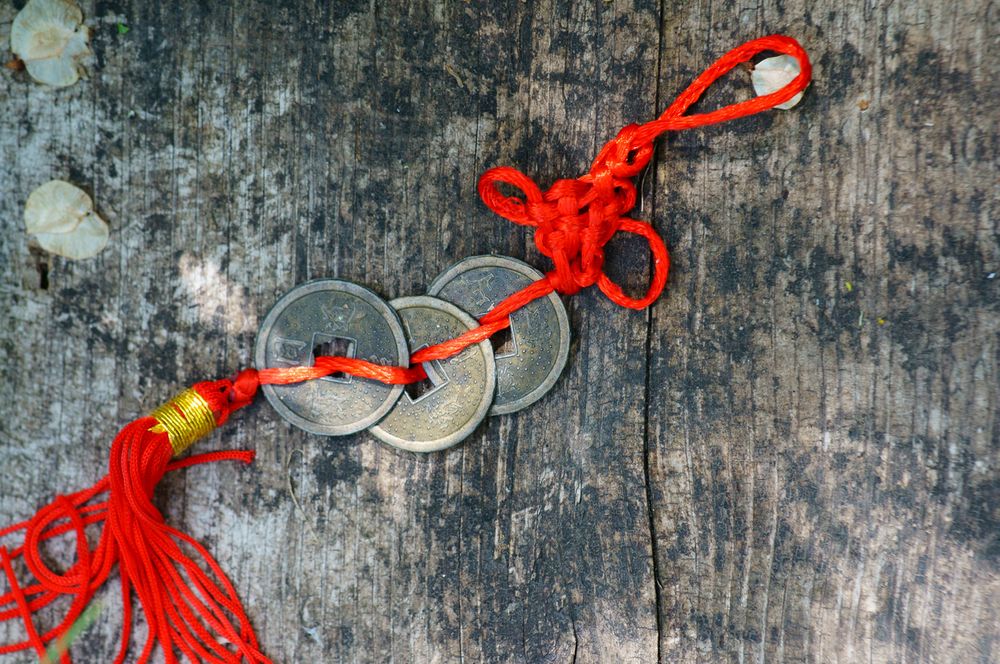
Wealth (Xun)
- Direction: Southeast
- Element: Yin wood
- Color: Purple
- Shape: Rectangular, columnar
- Season: Spring
- Number: 5
- Represents: Wealth, prosperity, abundance
Family (Zhen)
- Direction: East
- Element: Yang wood
- Color: Green, teal, blue
- Shape: Columnar, rectangular
- Season: Spring
- Number: 4
- Represents: Family and new beginnings
Helpful People (Qian)
- Direction: Northwest
- Element: Yang metal
- Color: Gray and metallics
- Shape: Spherical, circular
- Season: Fall
- Number: 6
- Represents: Helpful people and travel
Love and partnerships (Kun)
- Direction: Southwest
- Element: Earth
- Color: Brown, orange, yellow
- Shape: Flat, square
- Season: Transitions
- Number: 5
- Represents: Partnerships and love
Children (Dui)
- Direction: West
- Element: Yin metal
- Color: White, metallics
- Shape: Spherical, circular
- Season: Autumn
- Number: 7
- Represents: Children, completion, joy
Fame (Li)
- Direction: South
- Element: Fire
- Color: Red
- Shape: Pointy, triangle
- Season: Summer
- Number: 9
- Represents:
Knowledge (Gen)
- Direction: Northeast
- Element: Yang earth
- Color: Dark blue
- Shape: Square, flat
- Season: Transitions
- Number: 8
- Represents: Knowledge, skillfulness, self-cultivation
Career (Kan)
- Direction: North
- Element: Water
- Color: Black
- Shape: Curvy, wavy
- Season: Winter
- Number: 1
- Represents: Path in life, career
The Five Elements
We’re sure you’re well aware of the five natural elements – metal, earth, wood, water, and fire. These elements come from the Taoist tradition and are seen as the five phases in life. And all five phases come together to complete a whole system. So feng shui is about balancing these five elements in your house and Bagua.
So, how do you incorporate the elements into your home and everyday life? You first need to define the areas in which you want to focus your energy. Then, you add the suggested colors and shapes to your room. For example, if you wanted to focus your energy on family, you would add green, teal, or blue rectangles or columns into your room. This could be along the lines of a teal vase or a blue piece of art.
Arranging furniture and paying close attention to your Bagua should increase energy flow in your home and other areas of your life.
View in gallery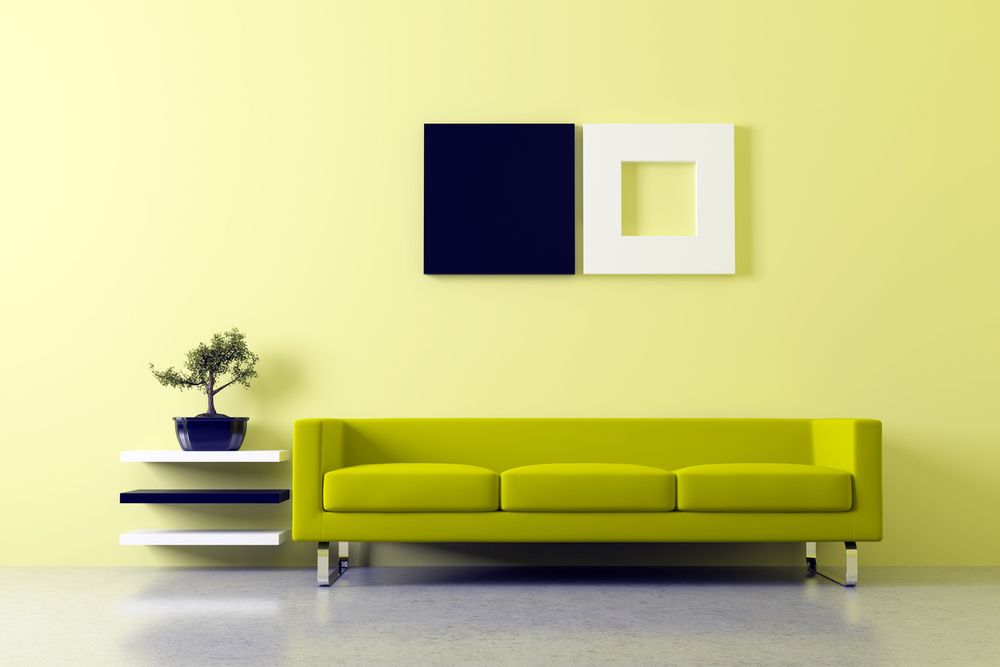
Metal
- Shape: Spherical, circular
- Colors: White, metallics
- Qualities: Efficient, beauty, precise
- Areas: Children, helpful people
- Season: Autumn
Earth
- Shape: Square, flat
- Colors: Brown, orange, yellow
- Qualities: Self-care, grounded, stable
- Areas: Partnerships, wellness, knowledge
- Season: Transitions
Water
- Shape: Curvy, wavy
- Colors: Black
- Qualities: Flowing, downward, shifting
- Areas: Career
- Season: Winter
Wood
- Shape: Rectangular, columnar
- Colors: Green, blue
- Qualities: Vitality, upward, expansive
- Areas: Family, wealth
- Season: Spring
Fire
- Shape: Pointy, triangle
- Colors: Red
- Qualities: Brilliant, illuminating, passion
- Areas: Fame
- Season: Summer
Final Thoughts on the Meaning of Feng Shui
Feng shui, the ancient Chinese art of arranging living spaces, should bring nothing more than peace and prosperity to human life. This ancient practice has been around in Chinese culture for centuries and considering interior designers still use it today when placing furniture. We don’t think it’ll be going anywhere anytime soon.
Even if you’re skeptical of the practice, feng shui is a fun and interesting way to incorporate a calming environment and traditional Chinese culture into your home.
Along with creating a harmonious space in your house with colors and elements, feng shui puts you in tune with your environment and the surrounding energy forces.
Do you believe in feng shui? And, have you used it in your house? Let us know in the comments down below!





